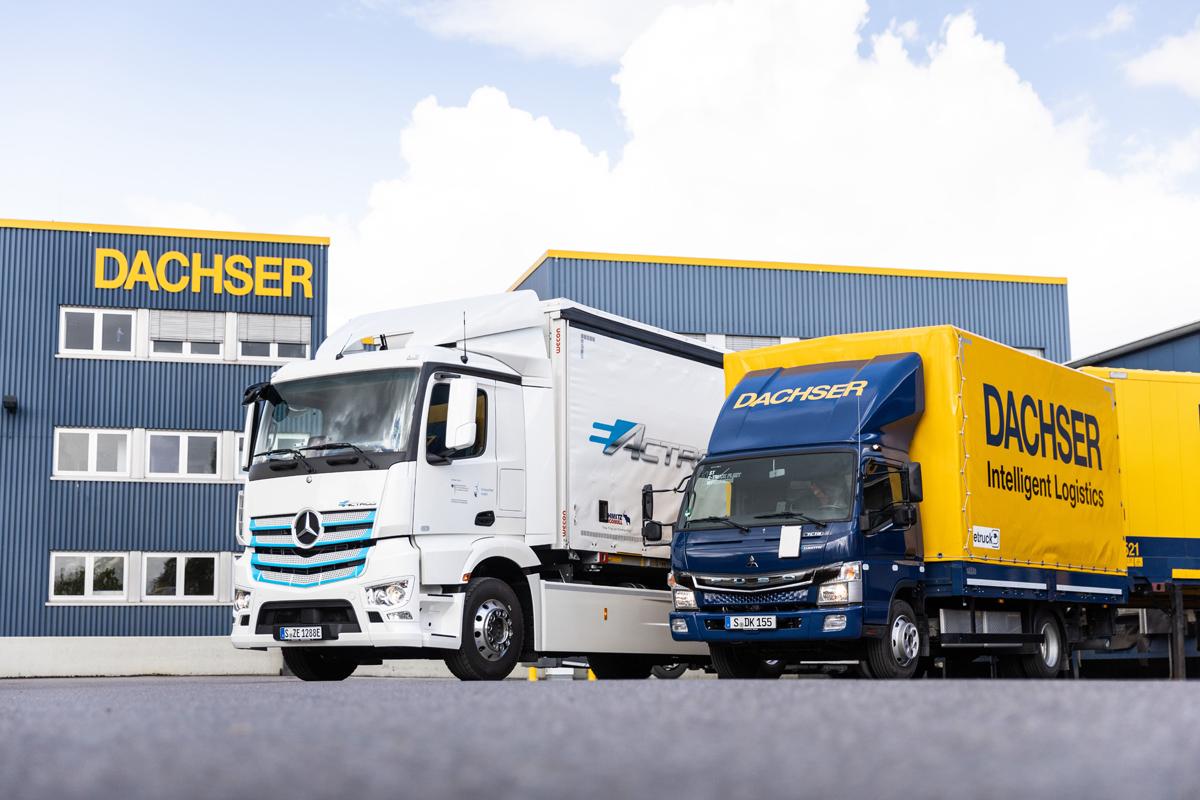What's new on alternative driving concepts
Where are new technologies headed? Will electric motors soon replace diesel or will entirely different energy sources come into play? At Dachser, logistics specialists from different divisions investigate alternative driving technologies and their practical application in the logistics network.
Linkabout Dachser
A climate neutral economy by 2050: this is the ambitious goal that the European Union recently announced as part of the European Green Deal ("European Green Deal"). In the EU's efforts to implement the 2015 Paris Agreement on Climate Change, the restructuring and reorganization of transport and traffic play a key role, accounting for around a fifth of all greenhouse gas emissions. greenhouse in developed industrialized countries, such as Spain.
"Clean mobility is only possible if the mobility system is organized efficiently and is based on digitization, data exchange and compatible models. This makes intelligent traffic management possible and enables automated mobility between all operators, leading to less congestion and higher rates of capacity utilization, "says the European Commission. The foundation for clean mobility will be created by switching to non-fossil fuel in passenger and cargo transportation.
Dachser - in addition to its existing environmental management efforts and the multi-year “City Distribution” innovation project - has intensified its analysis of alternative fuels and technologies. "We examine current and future technologies, together with our internal specialists, and discuss them with external partners. Our focus is on evaluating propulsion systems and alternative fuels, as well as the new logistics concepts they entail, especially for trucking," says Stefan Hohm, Corporate Director Corporate Solutions, Research & Development at Dachser.
However, in the short term, there are no ready solutions on the market. "Currently, there is no way to apply any of the emissions-free sustainable alternative fuels or powertrains, either for technical reasons or for economic factors," explains Andre Kranke, Department Head R&D Research & Innovation Management.
Looking for solutions for long-distance transport
It is clear that, in the long term, the future belongs to the electric motor, powered by electricity, either by batteries, or by hydrogen fuel cells. Dachser is already operating with its first electric trucks as part of new distribution projects in the city, in cities such as Stuttgart, Berlin or Hamburg. However, over distances in excess of 200 km, these vehicles are still very limited. In the medium term, it seems technically possible, although it is still difficult to quantify economically, that battery-powered trucks are used for regional distribution covering an approximate range of 450 km. “Beyond this distance, the usefulness of the pure battery becomes very uncertain. This technology does not allow a trade-off between range, payload and load times that compensates in long-distance transport, "explains Kranke.
"The diesel engine is still the most widely used and most profitable driving system in cargo transport, and is likely to remain so in the medium term," explains the head of Dachser. The high energy density of diesel fuel makes driving possible over very long distances, and the technology is highly refined, thanks in large part to the pressure of increasingly stringent EU standards. Finally, diesel truck operations are efficient because they make use of global infrastructure and technology. of existing vehicles. In combination with second-generation biofuels, diesel engines can even achieve significant short-term greenhouse gas reductions in some EU countries. This gives them a valuable role in climate protection, albeit only be like a step towards electromobility.
Natural gas propellants, an unexplored potential
The research is also focused on exploiting the use of natural gas, in the form of compressed natural gas (CNG) or liquefied natural gas (LNG) to power truck engines. The use of natural gas of fossil origin does not provide any significant climatic benefits. "We are talking about minimal CO2 savings compared to a modern diesel truck, depending on the technology used," says Hohm. Only bio-LNG and bio-CNG are really considered intermediate technologies; however, their economic viability and suitability for everyday use vary widely within the EU and must therefore be assessed on a case-by-case basis.

